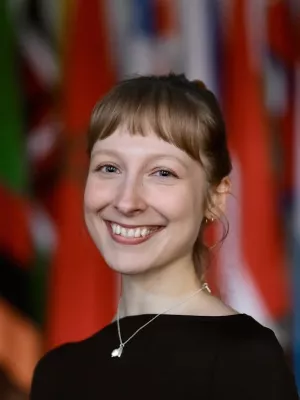
Jenny von Platten
Postdoktor

Reducing the Impact of Bias in Oral Assessments
Author
Summary, in English
Oral assessment is an important method to evaluate the learning outcomes of scientific courses. However,there are certain limitations when oral assessment is applied.One of these limitations, which is not apparent in anonymous written exams, is the existence of biases which could lead to unfair (positive or negative) outcomes of the assessment. This could lead to decreased motivation and sense of belonging among minority student groups, potentially upholding or even increasing inequalities. The major issue with biases is that most of them are unconscious, meaning that it is very tough to mitigate. In this manuscript, we analyze the emergence and effect of expectancy-based bias through personal construct theory in order to find approaches to reduce the influence of bias in oral assessment. As such, we address biases existing before interaction with the student (stereotype), emerging from interaction with the student (halo bias), and how these can contribute to a biased idea of the student in the evaluator’s mind. We finally discuss how this can cause cognitive dissonance and biased assessment when student performance is not in line with the teacher's cognitive model of the student and propose solutions on how to deal with this to minimize bias in oral assessment.
Department/s
- Department of Biomedical Engineering
- MultiPark: Multidisciplinary research focused on Parkinson´s disease
- The International Institute for Industrial Environmental Economics
- Robotics and Semantic Systems
- LTH Profile Area: AI and Digitalization
- Mathematics (Faculty of Engineering)
- Mathematical Imaging Group
- LU Profile Area: Light and Materials
- LTH Profile Area: Nanoscience and Semiconductor Technology
- LTH Profile Area: Aerosols
- Biochemistry and Structural Biology
- NanoLund: Centre for Nanoscience
Publishing year
2023-12-07
Language
English
Publication/Series
LTH:s 12:e Pedagogiska Inspirationskonferens, 7 december 2023
Volume
2023
Full text
- Available as PDF - 467 kB
- Download statistics
Links
Document type
Conference paper
Topic
- Learning
Status
Published
Research group
- Mathematical Imaging Group
ISBN/ISSN/Other
- ISSN: 2003-3761

